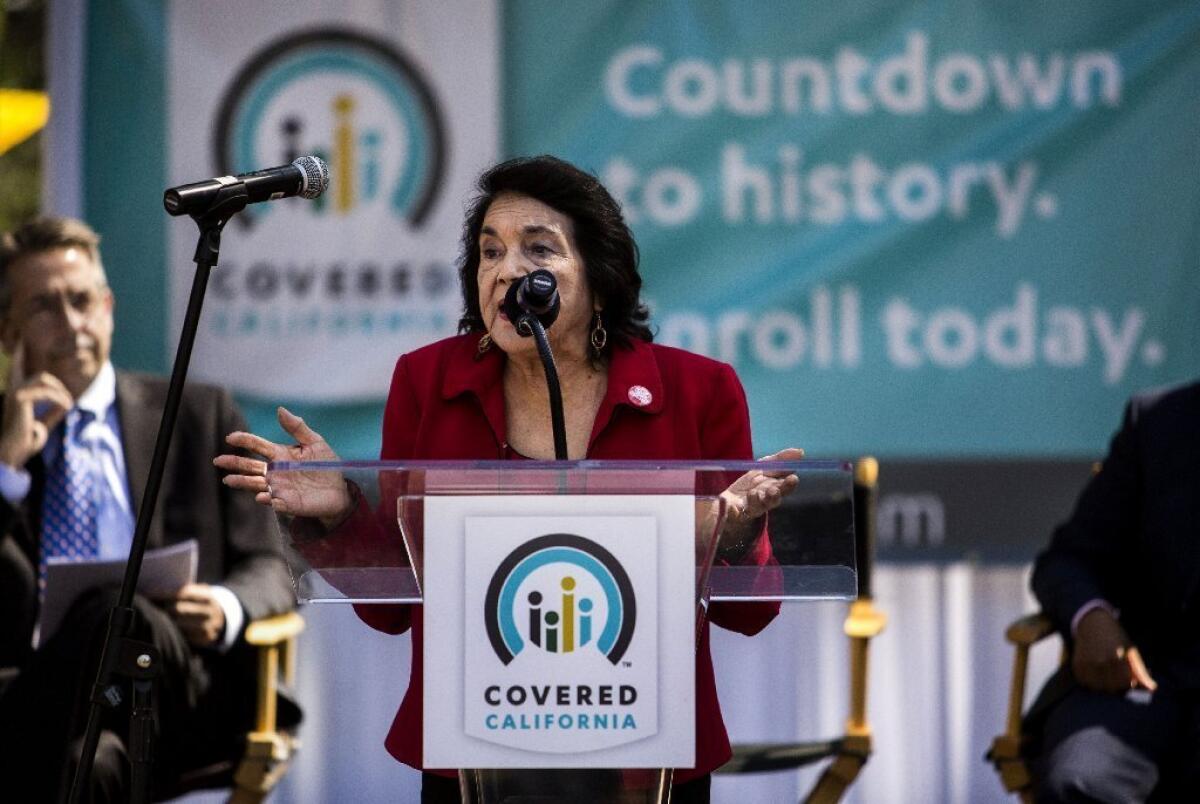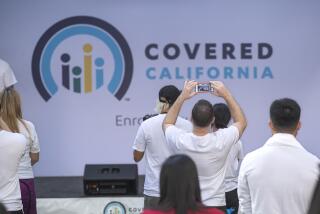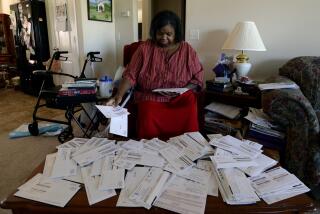Today’s Obamacare freakout: ‘But how many have paid???’

- Share via
Affordable Care Act ill-wishers -- who take a curiously gleeful view of suggestions that the act isn’t working, as if failing to bring health insurance to millions of people is something to celebrate -- have trolled a succession of “concerns” suggesting that even if you think Obamacare is working, it’s really not, because...
So we’ve had the “Yes, millions have signed up, but most of those already had insurance” freakout. And the “Yes, millions have signed up, but not enough of them are young” freakout. Related to the latter is the “Bad demographics will cause an insurance death spiral” freakout. These were icing on a cake whose original ingredients included the “death panel” and “government-controlled healthcare” freakouts.
As each of these memes is shown to be not a problem, not happening or not relevant to the ACA’s goals -- which include not merely insuring the uninsured but tightening consumer protection standards and improving access to more comprehensive health plans -- the ill-wishers have moved on to the next cavil.
A hardy perennial now enjoying a revival is the “How many have PAID???” freakout. Independent ACA statistics tracker Charles Gaba has put this one under his microscope. His conclusions are that, first of all, the issue is probably exaggerated and, second, it’s way premature even to count nonpaying enrollees, because many of them won’t even receive bills for weeks yet. (We’re indebted to Gaba for the triple-question marks in our headline, as well as for resurrecting the useful term “freakout.”)
The level of paid enrollments is an important metric, because enrollees aren’t actually covered by their health plans until they’ve paid the first installment on their premiums. So the suggestion that the enrollment figures are inflated by supposed “deadbeats” is a popular one among conservative ACA critics. (In some cases grace periods have allowed for retroactive coverage, but they’ve been rare.)
Here’s what Gaba found, however. First, the percentage of enrollees who have paid up (the “paid rate”) looks to be hovering at 81%-85%. The figure is murky because only 10 states actually provide a figure. That includes California, which bases its figure on what it hears from the insurance companies getting the payment and which says its paid rate is “more than 85%” as of March 15.
But Gaba observes that the 15% shortfall includes a lot of people who aren’t sleazing out on their bills. It includes millions of people who enrolled between mid-February and mid-March and won’t start coverage until April 1; there will be more who have enrolled since March 15 who won’t start coverage until May 1. Their first bill might not arrive until as long as six weeks after their enrollment, which means many haven’t paid because they haven’t been billed yet or have been billed but the payment isn’t yet due.
“Considering how many people wait until the last minute to pay their bills,” he writes, “it’s silly to write these people off as deadbeats. The vast majority of these will eventually be paid up, it’s just that we won’t have confirmation of many of them until well into May.” If exchange-based signups reach Gaba’s projection of 6.2 million by March 31, he calculates that 40% won’t be starting coverage until April 1 or later.
Statistics from Vermont lend support for Gaba’s analysis. The state reported last week that nearly 92% of enrollees whose policies started in January, February and March were paid up -- but only 19% of those with coverage starting in April and 16% of those starting in May. In Vermont, then, it appears that we’re talking mostly not about “deadbeats” but prudent household budgeters with maybe a few procrastinators folded in. So the next time an ACA critic warns that a lot of people haven’t paid for their exchange coverage, ask if he normally pays his bills six weeks in advance.
More to Read
Sign up for Essential California
The most important California stories and recommendations in your inbox every morning.
You may occasionally receive promotional content from the Los Angeles Times.














